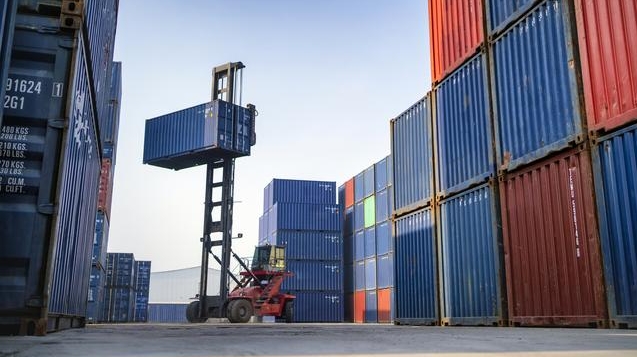Businesses have a natural tendency to grow and go through similar life cycles: start-up, growth or scale-up, maturity, and exit. And sooner or later, owners must confront the advantages and disadvantages of expanding a business. It can be an exciting journey … if you navigate properly.
What to consider before expanding a business
Cash reserve refers to the liquid assets your company keeps on hand to meet short-term and emergency funding needs and can also be referred to as a cash flow reserve. Cash is the most liquid, of course, but short-term stable investments that are not likely to lose value, such as money market funds, can also be cash reserves for business as they enable you to quickly gain access to your money.
When to expand your business
Business expansion can be prompted by many reasons, though it generally occurs when your business seeks additional options to generate more profit. You may be considering expansion to overcome problems, such as being able to respond to increasing competition; or you might see the benefits of expanding a business because of success and, therefore, have the cash and profits to support growth; or you may want to investigate the advantages of expanding a business internationally.
Expansion might involve adding employees and franchises, increasing your marketing efforts, forming an alliance, offering new products or services, merging with or acquiring another business, or expanding online. There may also be benefits of expanding business overseas.
But whatever your reasons to consider the advantages and disadvantages of expanding a business, remember that growth can be a disruptive force, affecting every aspect of your business: your staff, resources and finances.
So, it’s important to consider not just the benefits, but also the disadvantages. Check out our article on the benefits of exporting if you’re considering offering goods or services in another location.
Is this the right time for business expansion?
Your own financial data can show you advantages and disadvantages of expanding a business. The following data-driven indicators will suggest that your business is on a sustainable growth path and that ‘now’ is the right time to reap the benefits of expanding a business:
- Your products and/or services are increasingly in demand.
- Your profits have been strong for several years.
- Your costs are under control consistently.
- You have the available resources (financial, personnel, materials).
- You have external investors (angel investors, venture capitalists) ready to put money into your business.
Note: investors typically want ownership equity, such as shares of your company, in exchange for their cash, an important consideration when assessing the advantages and disadvantages of expanding a business.
What are the advantages of expanding a business?
Overall, the benefits of expanding a business include reducing external risks (such as those posed by competition, the market, or technology changes). Expansion can also enhance the impression of greater financial viability: larger businesses often look more appealing to investors and lenders.
More specifically, advantages of expanding a business include:
- Attracting new customers in new markets or with new products and services. A large and diverse customer base also helps insulate your business against over-reliance on a single customer.
- Creating economies of scale. One of the benefits of expanding a business is spreading the risk of doing business and reducing the negative impact of one product or one poor decision on your business. Operating in multiple markets or product areas also allows you to spread the cost of doing business across more markets or customers and lowers the cost of doing business on a per-customer basis.
- Amortising costs. You may get discounts for buying in bulk or reduce your marketing expenses by spreading the cost of promotion over larger sales.
- Increasing your market influence. One of the important advantages of expanding a business is the influence increased size gives you in influencing market pricing.
- Diversifying increases protection. Entering new markets or introducing new products and services means that if one part of your business is exposed to market changes, you can rely on other income streams.
What are the disadvantages of expanding a business?
Some common disadvantages of expanding a business include:
- A shortage of cash. You may need to borrow money to buy new premises or equipment to expand.
- Increased capital requirements. A larger business requires a larger workforce, more facilities or equipment, and often more investment.
- Loss of control. Larger businesses mean delegating more management duties or dividing workloads between different locations. This potentially can lead to compromised quality and lower staff morale, resulting in higher staff turnover, which in turn can damage your customer relationships.
- Compromised productivity and quality due to lack of resources. Management, staff and even your machines may not be able to keep up with the excess workload.
There are also problems related to insufficient planning and preparation that you should try to avoid:
- One of the biggest mistakes is to expand too quickly. This can put your business at risk because growth can create excessive pressure on every aspect of the business from supplier to staff to all-important cash flow, all of which can push your business into a downward spiral.
- Insufficient planning is another issue to be mindful of and can also hurt your operations. For example: your business is taking online orders via your website, but you haven’t set up a secure customer database or created a customer consent form for third-party emails. This puts you at risk of being accused of mishandling data and paying hefty fines under GDPR.
Remember, when considering the advantages and disadvantages of expanding a business, increased output and profit means increased pressure on resources. This increases significantly when you consider overseas expansion.
What to consider when expanding a business internationally
Among the advantages of expanding a business internationally:




